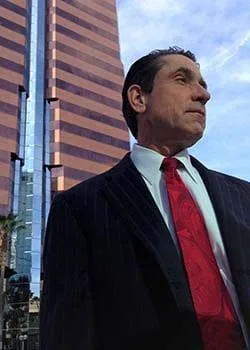Criminal Lawyer in Long Beach, Matthew Kaestner, is a certified criminal law specialist who has handled criminal cases charged under the "Three Strikes Law" since the law first took effect on March 7, 1994. He has handled literally hundreds of criminal cases charged under the "Three Strikes Law." For immediate assistance concerning a "Three Strikes" case or any other criminal case, contact Mr. Kaestner directly at (562) 437-0200. To follow is a brief overview of the "Three Strikes Law" in California.
On March 7, 1994 California's "Three Strikes Law" took effect. The current law is actually two laws, one passed by the California Legislature and one endorsed later by the voters by initiative. 72% of California voters voted for the law. Both laws are virtually identical and are contained in Penal Code section 667(b)-(i) and Penal Code section 1170.12.
In November of 2012, California voters passed Proposition 36 (not to be confused with narcotics law proposition 36 passed in 2000). This proposition outlawed three strikes sentences of 25 years to life if the new felony was not serious or violent.
The "Three Strikes Law" is both a two strike law and a three strike law. In short, the law requires that persons who have been convicted of at least one "strike" at any time in their past must receive greater punishment on any felony they are convicted of in the future. If a person has one prior "strike" and later is convicted of any felony, three things happen. First, the person must go to prison, they are legally ineligible for probation. Second, they must serve double the amount of time the offense normally carries. Third, they must serve 80% of their sentence and are not eligible for half time credits in prison.
Since voters passed proposition 36 in November of 2012, persons who have two prior strikes no longer are eligible for a 25 year to life sentence unless their new offense is either a serious or violent felony or a drug case with a weight enhancement, various sex crimes, or a gun was used in the crime. A person may also get the 25 to life sentence on a third strike that is not serious or violent if one of the prior strikes was a homicide, sex crime, life offense, or other very violent felony.
What is a strike? A strike is any "serious" or "violent" felony. A list of serious felonies is found at Penal Code section 1192.7. A list of violent felonies is located at Penal Code section 667.5(c). Examples of common "strike" offenses are robbery, residential burglary, assault with a firearm, assault causing great bodily injury, and most sex crimes. A person convicted of any serious or violent felony at any time in their past, even before the Three Strikes law took effect, has a strike under the law. Juveniles convicted of certain violent offenses at the age of 16 or 17 will also have a strike offense for life.
Can "strikes" be dismissed to avoid an unfair sentence? The answer is yes. Although the passage of Proposition 36 limits third strike offenses largely to serious felonies, a 25 years to life sentence can be avoided even when the third offense is a serious “strike” offense. Both the prosecution and the judge have the power to dismiss one or more strikes to avoid an unfair sentence.
In 1996, the California Supreme Court decided the case of People v. Romero. The Supreme Court in Romero held that a judge could dismiss one or more strikes in the interest of justice to avoid a 25 year to life sentence if it is not warranted. A trial court can dismiss where the sentence is not within the "spirit" of the three strikes law. (People v. Williams.) Long Beach criminal defense attorney Kaestner has persuaded many judges and prosecutors to dismiss a strike to avoid a third strike sentence.
There are strategies to avoid a "Three Strike" sentence. An experienced criminal attorney will make every effort to avoid a strike conviction in the first place. However, when representing persons who have prior strike convictions, it is critical to have an extensive working knowledge of the criminal law and the strike law. There are many nuances to the strike law not discussed here that can make a big difference in the outcome of the case.
Long Beach criminal attorney, Matthew Kaestner, is a certified specialist in criminal law. Mr. Kaestner has a long history of saving clients from a 25 to life sentence under the strike law that includes receiving not guilty verdicts at trial, having evidence suppressed as illegally seized and attacking the legal validity of the strike prior. If you or a loved one is facing prosecution under the "Three Strikes Law," contact Long Beach's criminal law specialist, attorney Matthew Kaestner. He can be contacted directly at (562) 437-0200.




